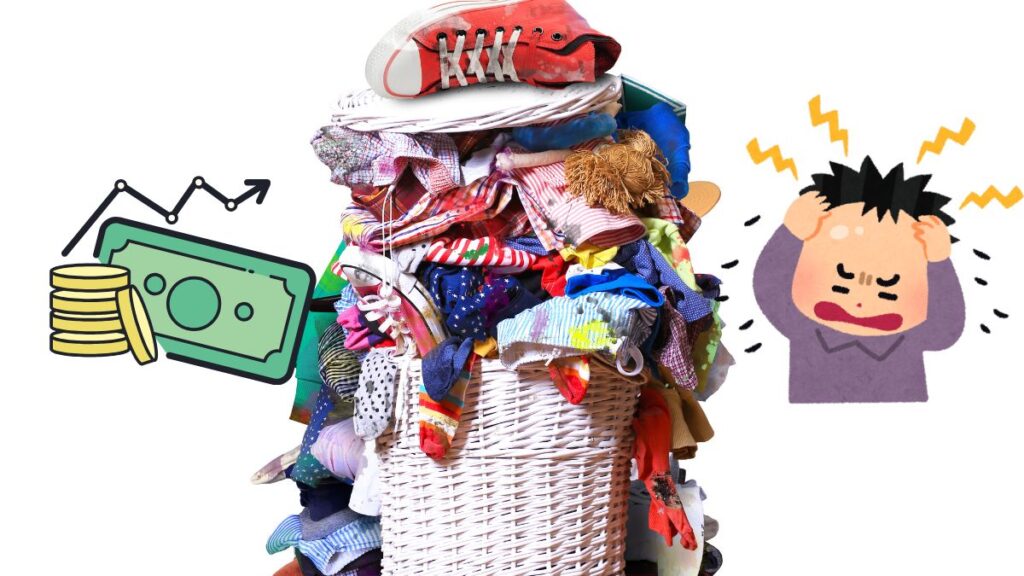Let’s get one thing straight: everyone needs clean clothes.
It’s a basic human need, like food, water, and shelter.
And in a bustling country like Kenya, where the population is booming and the middle class is on the rise, the demand for laundry services is skyrocketing.
But does that translate to cold hard cash in your pocket?
The short answer? Absolutely.
But like any business, it’s not just about showing up and watching the money roll in.
You need a solid plan, a smart approach, and the hustle to make it work.
In this article, we’ll break down the nitty-gritty of the laundry business in Kenya, show you the numbers, and give you the actionable advice you need to build a profitable venture.
Why Kenya is Ripe for the Laundry Business
- Growing middle class: More disposable income means more people are willing to pay for convenience. Time is money, and outsourcing laundry frees up valuable hours.
- Urbanization: Densely populated cities and towns create a concentrated customer base. Think apartments, student housing, and busy professionals.
- Increased female workforce participation: Women are increasingly taking on demanding jobs, leaving less time for household chores like laundry.
- Tourism: A thriving tourism sector provides a steady stream of potential customers who need laundry services.
Laundry Business Potential Profitability in Kenya
Let’s talk real numbers. Here’s a breakdown of potential costs and revenue for a small-scale laundry business in Kenya:
Startup Costs:
- Washing machines (2): Ksh 100,000 – Ksh 200,000
- Dryer (1): Ksh 80,000 – Ksh 150,000
- Ironing equipment: Ksh 20,000 – Ksh 50,000
- Rent and utilities: Ksh 20,000 – Ksh 50,000 per month
- Detergents and other supplies: Ksh 10,000 – Ksh 20,000 per month
- Marketing and advertising: Ksh 5,000 – Ksh 15,000 per month
Operating Costs:
- Labor: Ksh 15,000 – Ksh 30,000 per employee per month
- Utilities: Ksh 10,000 – Ksh 20,000 per month
- Maintenance and repairs: Ksh 5,000 – Ksh 10,000 per month
Revenue:
- Average price per wash: Ksh 100 – Ksh 200
- Average number of washes per day: 50 – 100
- Potential daily revenue: Ksh 5,000 – Ksh 20,000
- Potential monthly revenue: Ksh 150,000 – Ksh 600,000
Profit Margin:
With efficient operations and effective marketing, you can expect a profit margin of 20% – 30%. This means a potential monthly profit of Ksh 30,000 – Ksh 180,000.
Remember: These are just estimates. Your actual costs and revenue will depend on factors like your location, pricing strategy, and operating efficiency.
Read also: Latest Costs To Start a Laundromat in Kenya (Real)
3 Laundry Business Models to Choose From
Not all laundry businesses are created equal. Here are three popular models to consider:
- Laundromat: Customers come to your location to wash and dry their clothes themselves. This model requires a higher initial investment in equipment but can be less labor-intensive.
- Full-service Laundry: You handle the entire laundry process, from washing and drying to ironing and folding. This model offers higher profit margins but requires more labor and expertise.
- Home-based Laundry: You operate from your home, offering pick-up and delivery services. This model has lower overhead costs but requires effective marketing and logistics.
Dominating the Laundry Game: Key Strategies
- Location, Location, Location: Choose a high-traffic area with a dense population, such as near apartments, universities, or office buildings.
- Pricing Strategy: Research your competitors and offer competitive pricing while ensuring a healthy profit margin. Consider offering discounts and loyalty programs.
- Marketing and Branding: Get the word out through flyers, social media, and local partnerships. Build a strong brand that resonates with your target audience.
- Customer Service: Provide exceptional customer service to build loyalty and generate repeat business. Go the extra mile to exceed expectations.
- Efficiency is Key: Streamline your operations to minimize costs and maximize productivity. Invest in quality equipment and train your staff well.
- Embrace Technology: Use technology to your advantage. Consider offering online booking, mobile payments, and automated reminders.
Read also: How to Price Laundry Services in Kenya
Top Tools for Laundry Business Success
- Laundry Management Software: Streamline your operations with software that helps you manage orders, track inventory, and generate reports.
- High-Efficiency Washing Machines: Reduce water and energy consumption with energy-efficient machines.
- Industrial Ironing Equipment: Invest in quality ironing equipment to ensure professional results and efficient operations.
- Delivery Management System: Optimize your delivery routes and track orders with a dedicated delivery management system.
Read also: List of Dry Cleaning Business Equipment in Kenya (+ Prices)
How To Scale Your Laundry Business in Kenya
Once you’ve established a successful laundry business, it’s time to think about scaling. Here are some strategies to take your business to the next level:
- Expand your services: Offer additional services like dry cleaning, stain removal, and garment repair.
- Open multiple locations: Increase your reach and market share by opening laundromats or drop-off points in different areas.
- Franchise your business: Leverage your brand and expertise by franchising your business model to other entrepreneurs.
- Target niche markets: Cater to specific customer segments, such as students, businesses, or high-end clientele.
The Bottom Line: Clean Clothes, Clean Profits
The laundry business in Kenya is ripe with opportunity.
Remember, success in any business requires hard work, dedication, and a relentless focus on customer satisfaction.
So, are you ready to turn dirty laundry into clean profits?
The opportunity is knocking. Answer the door.
Read also:


